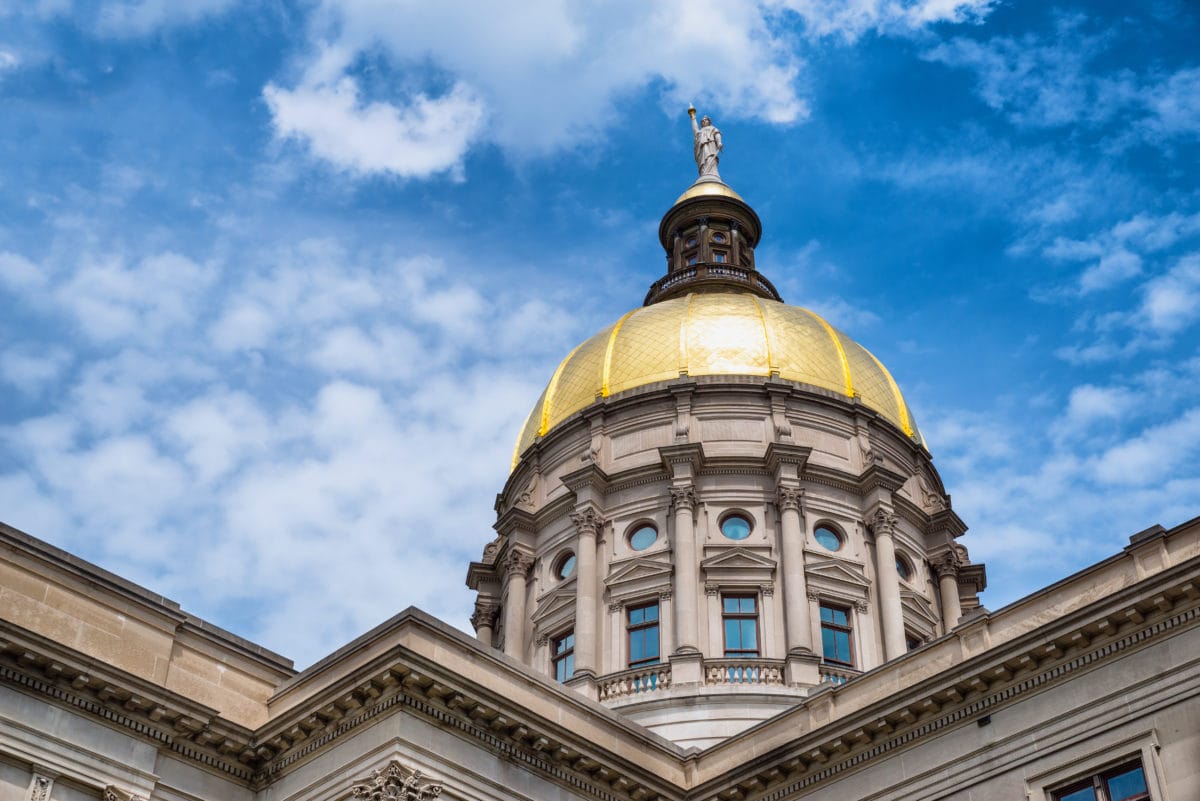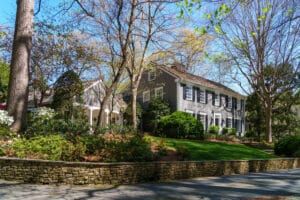Buckhead City is now one step closer to reality than it ever has been, but significant hurdles remain.
The de-annexation of Buckhead and subsequent incorporation of Buckhead City crossed a significant barrier for the first time Monday. Two bills aimed at creating a Buckhead municipality were approved by the Senate State and Local Government Operations Committee — which voted 4-3 along party lines with Republicans in favor — to send the bills to the state Legislature this year.
The two bills still face the hurdles of passing in both chambers after a similar bill proposed in the 2022 state legislative session was effectively quelled. The Kemp administration dealt a significant blow to the prospect of approval when one of the administration’s attorneys issued a memo last night outlining eleven concerns about the bills and stating in part that passage of the bills “without thoughtful consideration” would “ripple into a future of unforeseen outcomes”. The two bills outline various means of how Buckhead would incorporate and will allow Buckhead residents to vote on cityhood in November 2024 if passed by the Legislature.
Both bills have been sponsored by lawmakers outside of Atlanta and the Buckhead area. Still, the bills are likely to instigate a renewed push for and against the proposed Buckhead municipality, which gained significant momentum in 2021 and last year before ultimately fizzling out with some of the state’s top lawmakers, including House Speaker David Ralston and Lt. Gov. Geoff Duncan, sharing their eventual opposition.
Bills outline some key aspects of how Buckhead city would operate
The two bills, SB 113 and SB 114, illustrate some details of how a potential “City of Buckhead City” would operate, though some additional logistics remain unclear. Both bills are sponsored by Republican lawmakers representing areas outside of the City of Atlanta, including Randy Robertson (Cataula), Brandon Beach (Alpharetta), Greg Dolezal (Cumming), Matt Brass (Newnan), Lee Anderson (Grovetown) and Marty Harbin (Tyrone).
SB 114 calls for the creation of a city council with six districts plus the election of a mayor for four-year terms with all representatives living within the proposed city for at least 12 months prior to the date of election. Though this provision is in-line with many cities in the state, the proposed pay for these elected representatives has raised eyebrows. It calls for the mayor’s salary to be $225,000 for the first four years, $50,000 per year than Gov. Brian Kemp’s annual salary, with $179,000 paid per year for subsequent years in office. Councilmembers would be paid $72,000 per year for the part-time position, about $12,000 more per year than Atlanta City Council representatives.
Other stipulations in the bill would require the City of Atlanta to sell assets to the proposed Buckhead City, including parks, fire stations, schools, and water and sewer systems. These assets would be sold at bargain prices, including $100-per-acre for parkland, $5,000 for existing fire stations within the proposed city limits or a lease of $10 per year, and $1,000 for existing schools. The water and sewer systems could be sold for $100,000.
However, much still remains in the air.
“There’s a lot of things that haven’t been worked out yet,” Frank Ginn (R-Danielsville), chair of the Senate’s State and Local Governmental Operations committee, said during a Feb. 22 hearing on the two bills.
The next steps for the cityhood bills
After passing committee, SB 113 and SB 114 will now go before the Senate Rules Committee. This committee is tasked with the order of business for proposed bills, including the setting of Senate calendars and which bills are presented on Senate floor. The Senate Rules Committee includes several sponsors of each Buckhead cityhood bill. It is chaired by Matt Brass with Brandon Beach and Greg Dolezal serving as members and Randy Robertson in an Ex-Officio role.
The bills could then go to the State Senate floor. The bills must be passed by the chamber by March 6, crossover day, to move to the State House. The 2023 legislative session ends on March 29.
The Buckhead cityhood movement fight continues
Proposals to incorporate a Buckhead municipality first gained momentum in mid-2020 with the creation of the Buckhead Exploratory Committee, which led to cityhood bills in the 2021 legislative session. The push for potential cityhood also created opposing factions, including the creation of the pro-Buckhead City movement, the Buckhead City Committee, and the grassroots group Neighbors for a United Atlanta, which opposes the municipality.
Following the election of Atlanta Mayor Andre Dickens, who opposes Buckhead cityhood, and controversies surrounding Buckhead City Committee head Bill White, including incendiary statements that often rankled even supporters, the Buckhead referendum was not taken up for a vote at the State Legislature with growing opposition from leading state lawmakers.
However, the fight of Buckhead City is now primed for another round with SB 113 and SB 114, the first glimpse of which was on display at the State and Local Government Operations Committee’s hearing on the bills over the last two weeks.
Several dozen speakers took to the podium to voice their stance for or against the cityhood proposal Feb. 22. Those in favor of cityhood cited crime and safety as top concerns, many sharing personal stories of how they or those they know had been directly impacted by crime while living in the area. Some also shared displeasure over what they consider a decline in city services in Buckhead. They also contended residents should be able to cast their ballot for or against cityhood through a referendum. Buckhead City Committee leader Bill White did not speak during the public hearing Feb. 22, a continuation of what appears to be an effort on his part to not be the constant face in the media that he was in last years failed effort.
Those in opposition were fewer at the Feb. 22 meeting, but all those who spoke at the Feb. 17 meeting were against cityhood. In both meetings, those opposed claimed Buckhead City would create a litany of issues, some of these constitutional, regarding school representation and attendance at Atlanta Public Schools, issues over bonded debt, and effectively cutting off Buckhead’s water and sewage from the regional system. A representative with the Georgia Municipal Association also shared the organization’s opposition to the de-annexation, including the impact it would have on the proposed police training facility in Dekalb County. An Atlanta Public Schools representative also noted the district’s opposition.
Since the ideation of Buckhead de-annexation has gained momentum, the Buckhead City Committee has argued incorporation will enable better crime prevention through the creation of a Buckhead police force, prevent increased density and improve the local return on taxes paid. Meanwhile, opponents state incorporation will lead to a host of issues, primarily increased taxes and bond debt for both Atlanta and Buckhead residents, the potential of Buckhead area students not being able to attend Atlanta Public Schools and that the City of Atlanta is effectively working to address crime issues and concerns within the area.





